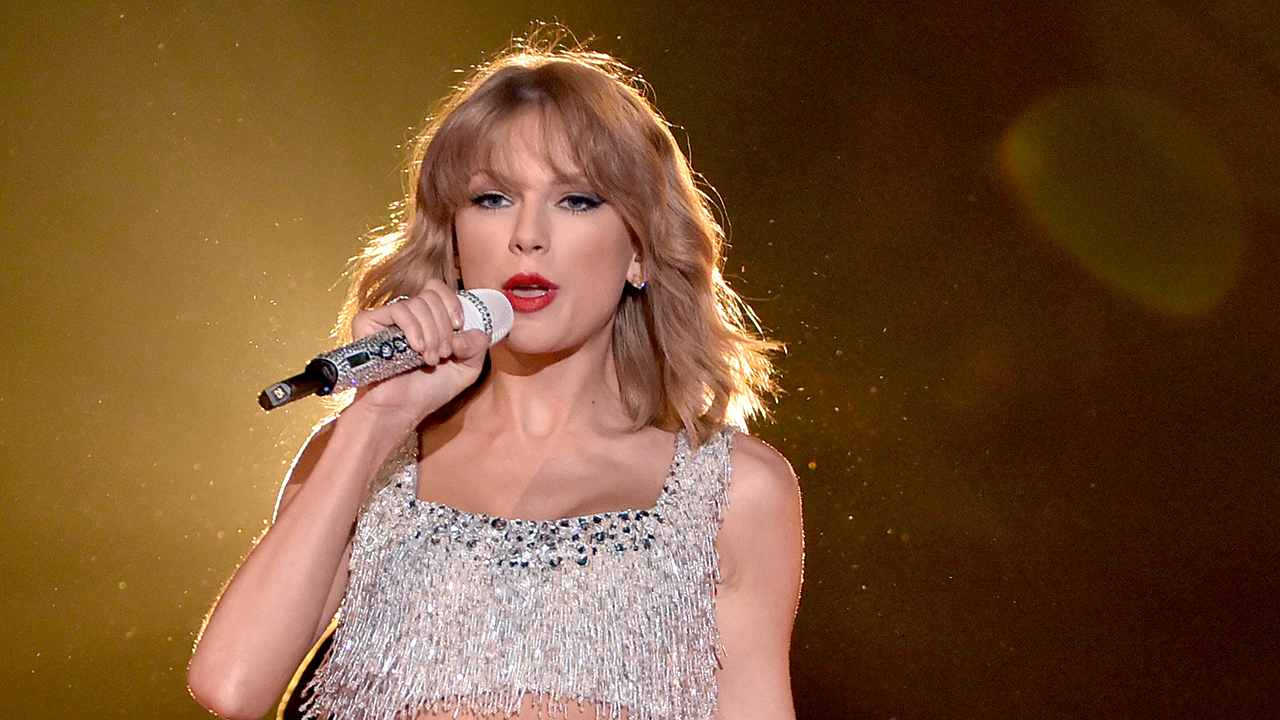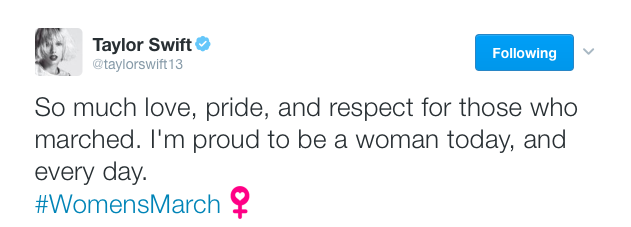News feed
 Image: Getty
Image: Getty
Taylor Swift’s influence on the female population is staggering, so is a quick tweet and hashtag in support of the global Women’s March movement enough?
Taylor has been called out by hundreds after she tweeted in support of the protests that took place across the world this past weekend, despite not attending.
“So much love, pride, and respect for those who marched. I’m proud to be a woman today, and every day,” she wrote on Monday.

But many have slammed Swift’s tweet and criticized her for jumping on the social media bandwagon without actually showing up at a march, as did celebrities including Scarlett Johansson, Natalie Portman, Miley Cyrus, Rihanna, Chrissy Teigen, Kristen Stewart, Chelsea Handler and Amy Schumer.
“You got a bad leg or something? Why didn’t you march?” wrote one user.
“Stop using feminism as a prop to fuel your fake girl power narrative/meticulously crafted PR persona,” said another.
“Taylor Swift is only a feminist when it’s convenient for her,” was another comment. “She’s done more to hurt feminism than help.”
Another observed her piggybacking on the movement and perceived lack of action. “This is gross opportunism. Be better.”
It might be that Taylor wasn’t able to attend and still wanted to show her support, and could be privately donating to the cause. But this latest uproar comes after repeated criticism of what some say is faux-feminism by Swift – seemingly aligning with feminist values and tapping into the narrative to sell music, without taking any real action, despite her incredibly privileged position of influence.
It also comes after Taylor chose not to be publicly political during the US election and never openly expressed support for either leader, unlike her peers Beyonce, Katy Perry, Rihanna and Miley Cyrus who all said “I’m with her” and backed Hillary Clinton. The Shake It Off singer is incredibly popular throughout the US and undoubtedly wanted to avoid alienating fans with different political views to her own. Could this be why she opted not to openly support the Women’s March, which although inclusive was inherently anti-Trump?
Choosing not to reveal where her political views lie and play it safe could pay off for Taylor, but it could also backfire in an era where increasingly we look to those with power and influence to take a stand.









